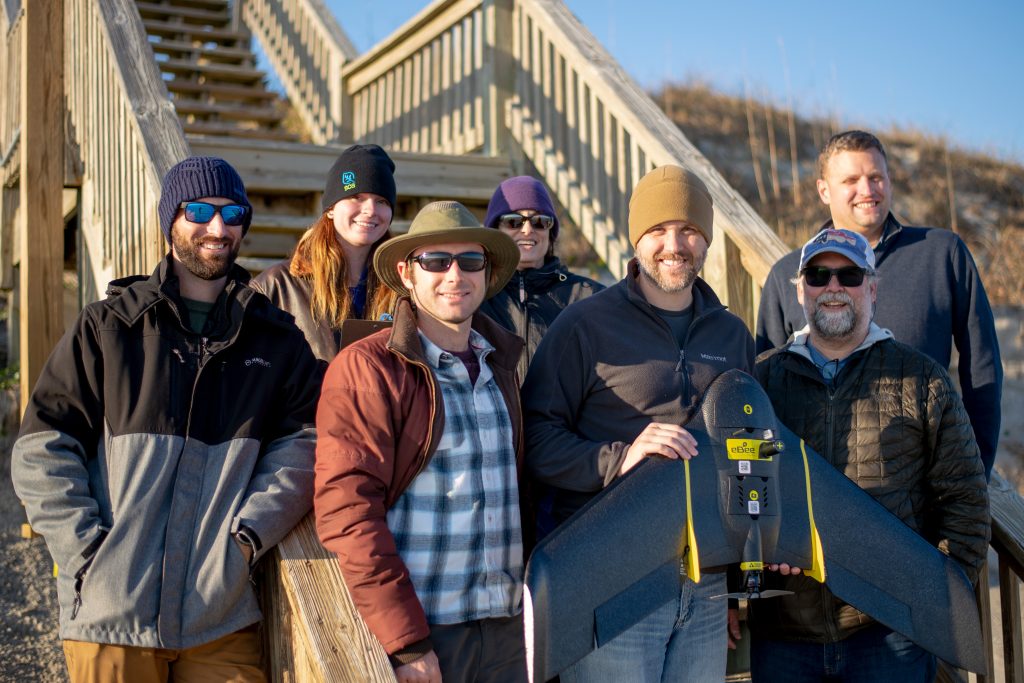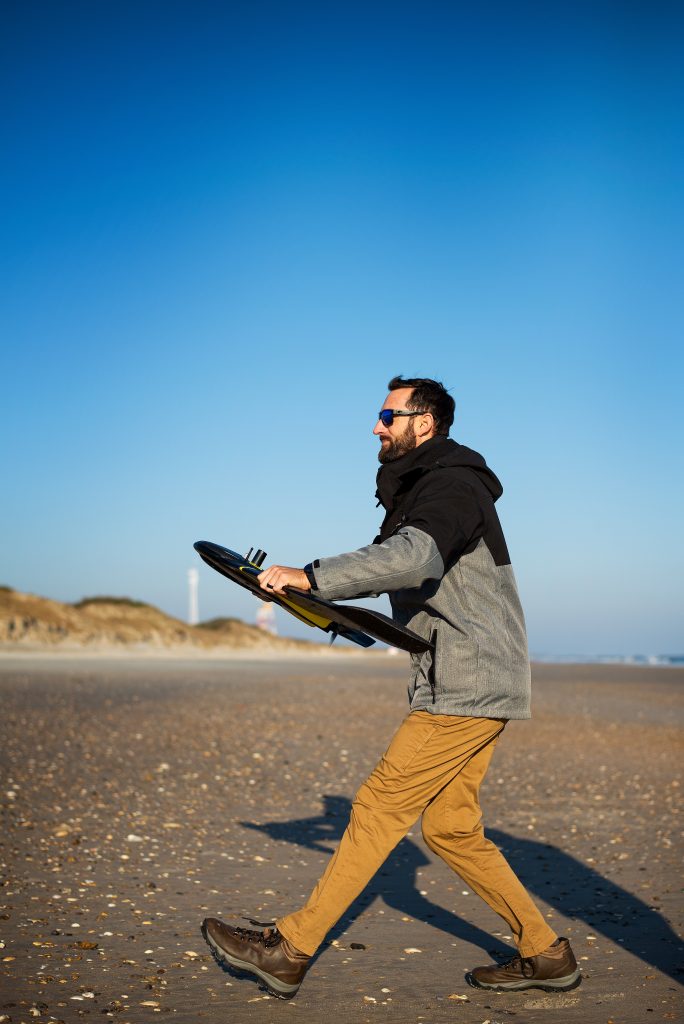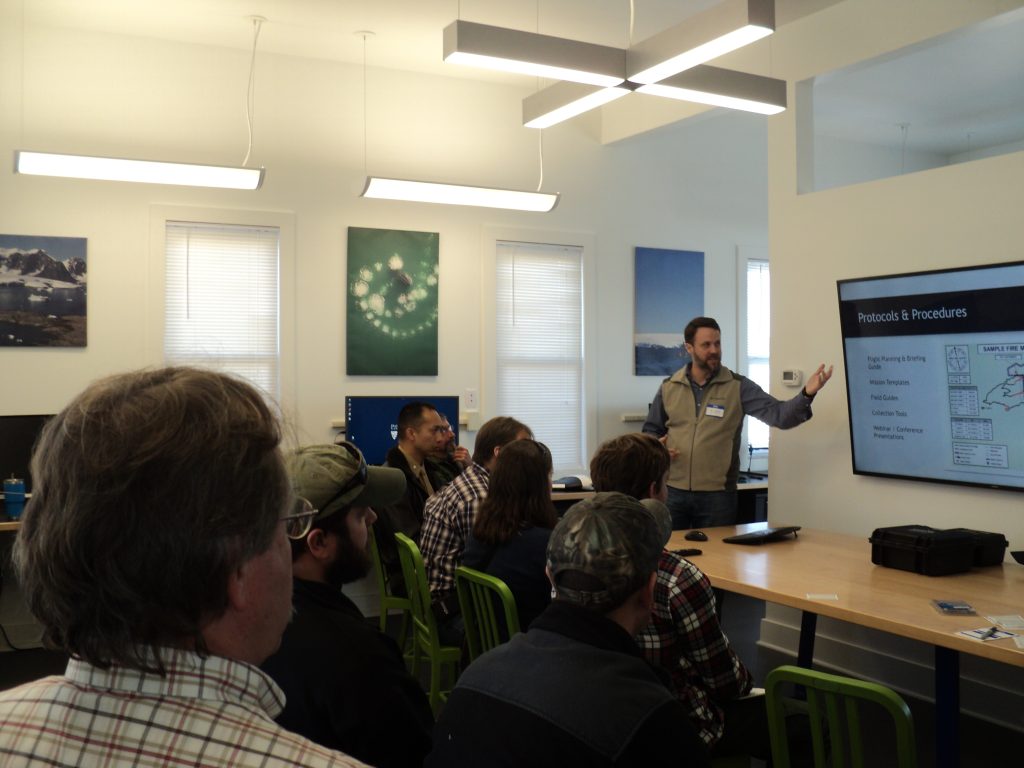UNC-Chapel Hill to lead $2.4 million U.S. Department of Defense-funded drone training program for natural resource professionals
April 7, 2019
A researcher at the UNC Institute for the Environment is leading a $2.4 million project to bring drone capabilities to Department of Defense (DoD) natural resource managers at Marine Corps bases in the Southeast region. Susan Cohen, IE’s associate director, and her collaborators will begin to train, demonstrate, and outfit DoD natural resource employees this fall with drones or unmanned aircraft systems (UAS) that can assist with monitoring prescribed fires, BASH (bird and animal strike hazards) and foreign object surveys for air fields, and coastal erosion, among a host of other uses.
“Whenever there is an opportunity to take a person out of an aircraft, you are doing a safer operation,” says Cohen. “Using drones in the right circumstances, can improve the quality of data collected, collect data efficiently and with less risk, and provide new opportunities to gather information in challenging environments.”
Drones allow these natural resource professionals to collect data on various subjects. These compact, unmanned aircraft outfitted with mission relevant sensors can provide significant cost savings by not employing expensive, piloted aircraft, which also gives the flexibility to conduct surveys at more frequent intervals and study change over time.
The training will be an intensive 2-week course with hands-on learning through demonstrations and suggested usage protocol.
“It is not just teaching them to fly, it’s managing the air space and cyber security, it is collecting data that is usable in decision making,” Cohen says. “Anyone can collect data, but what do you do with the data, how do you access it, how do you turn it in to something that supports decision making? That is what we are going to help instill in the participants.”
The team also will work with Marine Corps airspace managers to develop flight protocols.
“It is really important to make sure all parts of an installation are working together,” Cohen says. “By doing this together, everyone is brought along at the same time, creating the potential for long-term implementation and avoiding future conflicts. The last thing we ever want to do, aside from operating unsafely, is interfere with military’s ability to satisfy their training mission. It is quite the opposite, we want to enhance capabilities.”
Beginning in May, the team will take the project on a road show through Marine Corps installations along the East coast. The road show will kick-off in Blount Island, Florida and end in Cherry Point, NC. In between, the team will visit Albany, GA, Parris Island, SC, and Beaufort, NC.
“They are different installations with different issues to manage , but they all share similar big, broad challenges, particularly as they are all coastal except for Albany, GA” Cohen says. “We want these installations to talk to each other and help each other learn and grow. Many of them have air fields and they all have critical infrastructure. They have the same sort of challenges that are going to arise from potential future climate conditions, coastal erosion, etc.”
This project is an extension of a project that began in the summer of 2018 at Marine Corps Base Camp Lejeune, NC, led by the Duke University Marine Lab. Cohen will continue to partner with collaborators on this first project, including leads from Duke University Marine Lab, Dave Johnston and Justin Ridge; UNC Institute of Marine Sciences, Tony Rodriguez; and Attollo, a service disabled veteran owned small business (SDVOSB), Jon Putney and Troy Walton.
“Natural resource managers at these installations will have another tool at their disposal and they can use that tool in meaningful ways, not just to fly, but to collect data and gather information and use that information to enhance decision making, both short term and long term. It will give them some opportunities to collect different kinds of information they haven’t had the opportunity to collect before.”
This work is funded by the DoD’s Environmental Security Technology Certification Program.


